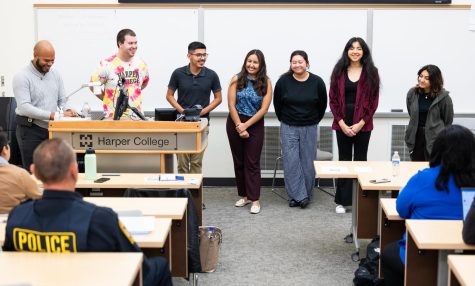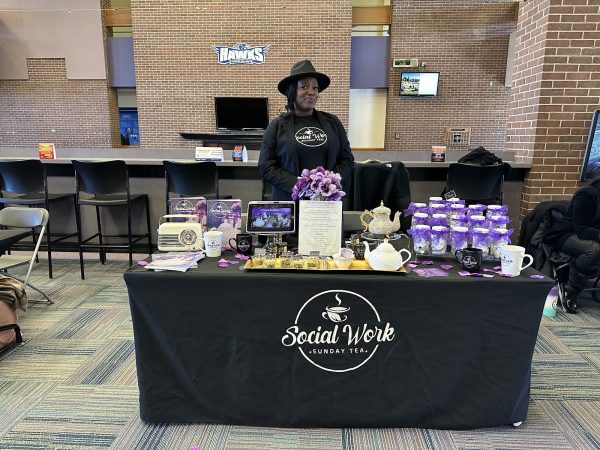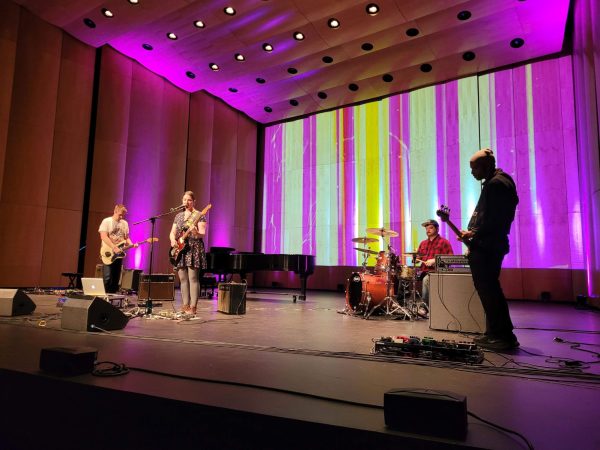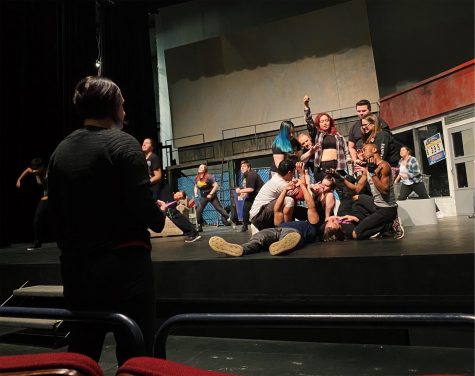To Be or Not To Be…. Involved?
As the President of the Animals Rights Club, Arianna Mormino dealt with an issue many club leaders at Harper College deal with: getting people to show up and participate.
“Due to conflicts with people’s schedules and classes,it’s been hard to get people to show up to meetings,” she explained.
Mormino understands the issues students sometimes have when it comes to attending club meetings. Most of their reasons are the same as the ones she had her first year at Harper College.
“I was a part of [the Animal Rights Club] last year but wasn’t an active member like I wanted to be because of class schedule conflicts,” Mormino said. “When I heard that the club would be needing a new President to get things up and running again this year, I asked the club [advisor] Professor Costell if I could take the position.”
Maintaining a club at Harper can be difficult. Mormino graduated this past spring and the club has already selected a president for this fall but, a majority of the small club also graduated this past spring.
Erin Morettes, the Student Involvement Manager, explained how the Animal Rights Club fell into this situation.
“It is common for clubs and organizations to start up, be active and then kind of die out,” Morettes said. “Usually what happens is that we have a really robust group of students who are very interested in something and [those students] progress through Harper College, earn their associates degree and transfer to four-year schools where they enter into the workforce. As those students leave, the passion for that club leaves with them, that’s why recruitment is very important.”
The most common reasons Erin Morettes hears from students about why they can’t be in the club are: not having enough time, work commitments, the commute not being convenient, lack of knowledge about clubs at the school, and medical reasons.
If a club is approved and can come to life, they will have more forms to fill out. When money is required, the club must submit a grant request at least two weeks prior to a large club event.
Students like Ishita Bhuptani have a hard time balancing both academics and extracurriculars. She expressed her regret in not participating in clubs after she heard more details about them.
“Honestly, having classes such as Calculus and Organic Chemistry made me move further away from the things I was interested in. I spent approximately 6 -7 hours a day studying for the test and homework; especially in chemistry,” Bhuptani said.
Other students, such as Roxana Machuca, decided that being less involved would give a smoother transition into college life.
“My first year I really wanted to just adjust and figure out what I wanted to do. I took note of things that caught my attention and next semester I’m going to try and participate in some stuff,” Machuca said
According to the Harper College website, students must first go to the Student Involvement center to receive a petition form to start a club. In this form, the prospective group president must have seven or more students interested in the club, a faculty advisor and a club constitution.
Despite all the challenges being involved can be rewarding. There are currently 64 clubs and organizations. “Being the leader of ARCH club allowed me to meet and collaborate with a variety of people at Harper, and allowed me to express myself and my interests on campus,” Mormino added.
A major benefit can be finding support system explained newly elected student trustee, David Satanfe-Zambrano. He credits the many clubs he participated in for garnering him support through the election.
“Despite enjoying different clubs, I didn’t run for any officer position; I wanted to be just a member so that I was able to have a better understanding of the needs and concerns of other students,” Santafe-Zambrano said. “After this experience, I knew I was going to be the next Harper College Student Trustee. I prepared for it.”
He plans to meet presidents and officers of organizations and clubs at Harper College because he believes that increasing the retention and graduation rates can also increase the student involvement.
Mormino offered some advice for students who might be on the fence about student involvement. “..to not knock it before you try it. I would see what clubs seem to interest them and then they can attend one meeting a
nd see if they like the atmosphere and if not then they don’t have to join it.”
















